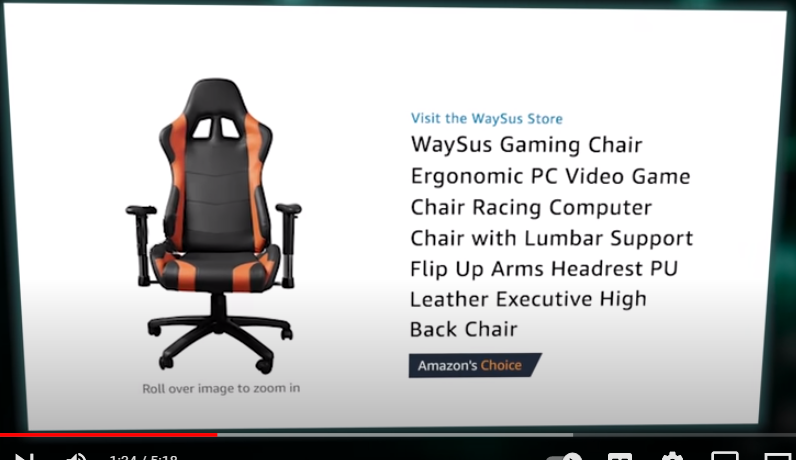If you If you are not familiar with Ryan George, then check out his YouTube Channels. Screen Rants, which offers commentary on films in the guise of pitch meetings in which spoilers abound, has nearly 8.5 million subscribers (and millions of views on his take on Spider-Man: No Way Home in which he reveals, among other things, how long it takes to watch five movies to get all the connections in this one).
The Ryan George channel has 1.38 million subscribers. One of the recent videos on that channel contains fundamental points about the customer's experience. In What Shoppiong on Amazon Feels Like, he nails both best practices and worst practices for effective marketing.
Best practice: conveying the sponsor message
The brand paying George for the video is mentioned at the beginning but only very briefly. That means that even if you don't want to sit through an extended description of the features and benefits SayMine.com boasts of, you will at least have heard of it.
That's a win-win solution. By placing the more extended description at the end, he's removing the irritation people have from being forced to watch an ad before they get what they want, something that is not likely to make people develop more positive feelings for the brand.
The brand still gets its spotlight with a brief mention in the beginning and in Ryan George's description of the video. Plus when he delivers the spiel about it, he does so in a kind of tongue-in-cheek manner consistent with the Ryan George brand. He delivers it in the guise of the "adstronaut."
Worst practices: irrelevance, keyword-stuffing descriptions, and information overload
Within the video, the role of Amazon shows an obliviousness to what the shopper wants and needs that highlight the worst practices of pushing products and services on the shopper that are irrelevant to his current needs. He's shopping for a chair and is not interested in video recommendations.
When he finally does get to see chairs, all of them are identical despite showing different brand names with variations on descriptions. Those of us who have shopped on Amazon know this is accurate but just to prove it, I'll put a screenshot from Amazon below:
Compare that with one of the ones in the video:
Content writers, take note! These product descriptions exemplify an SEO strategy that forgets about how the text sounds to the human reader .
While all that may not overwhelm the shopper, attempting to make sense of the thousands of reviews may do so. That is also not an exaggeration. One of the chairs I checked on the site had over 23.5K ratings.
Talk about information overload! A few hundred would be more credible and manageable than the huge number of reviews that certain products show on eCommerce sites.
Audiences loved this video because they could so relate as customers. Marketers and online sellers should pay attention because the humor here works because it is true. Turning off shoppers and losing potential customers due to bad practices is no laughing matter.
Related:
Amazon uses snail mail for direct mail and Seeing stars








